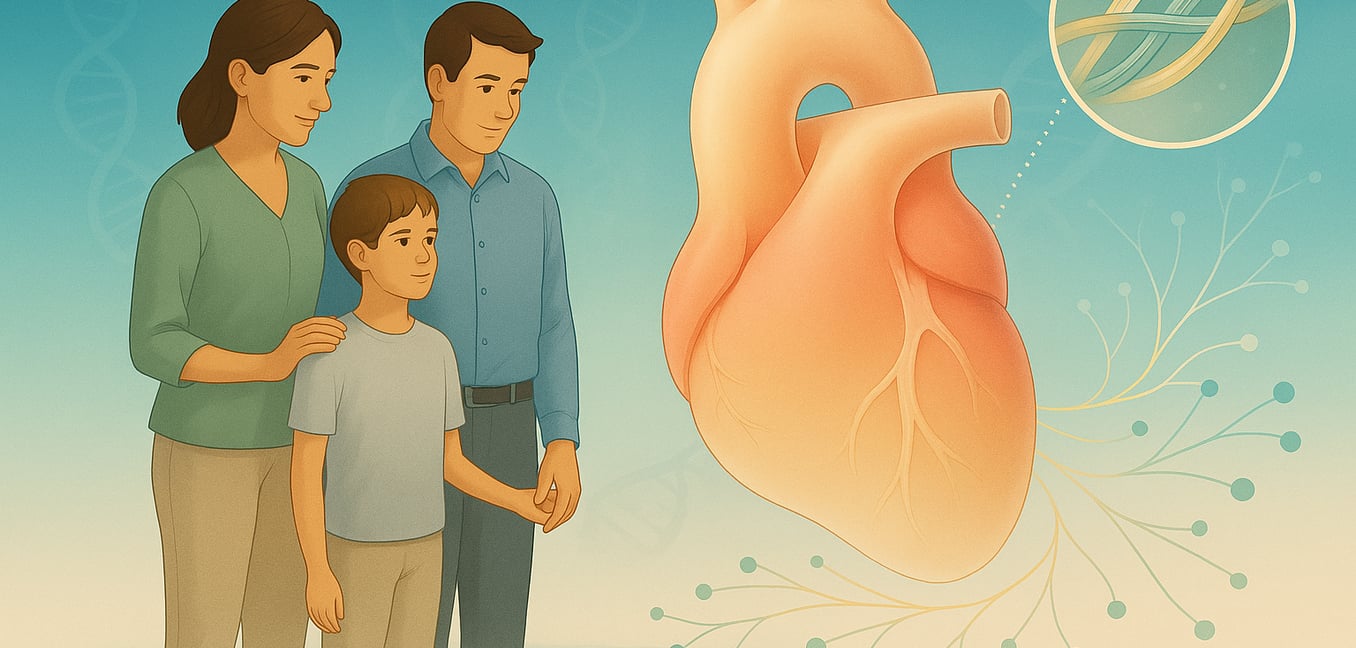Navigating Marfan Syndrome: A Guide to Building Your Support System
Receiving a diagnosis of Marfan syndrome marks the beginning of a lifelong health journey. This path reshapes daily life, requiring proactive medical management and thoughtful lifestyle adjustments. While the challenges are significant, a strong and layered support system empowers individuals and their families to navigate these complexities, build resilience, and lead full, active lives. The key is knowing where to find and how to build that support.
Building Your Core Support Network: Family, Friends, and School
Your immediate circle is the foundation of daily well-being. This network of family, friends, and educators provides the emotional and practical consistency needed to thrive.
The Immediate Family: Your First Line of Support
Your family is the bedrock of comfort and stability. Fostering an environment of open communication is essential, allowing everyone to share their fears, feelings, and successes without judgment. This involves adapting family life to be both inclusive and safe, such as finding new low-impact hobbies that everyone can enjoy together. By functioning as a cohesive unit, the family reinforces a child’s sense of security, reminding them that they are much more than their diagnosis.
Professional family counseling can also be a proactive tool. A therapist provides a neutral space for everyone to learn effective communication skills, develop shared coping strategies, and ensure all members feel heard and supported.
Caring for Caregivers and Siblings
The well-being of the entire family is interconnected. Caregivers must prioritize self-care to avoid burnout and maintain the energy needed for the long term. This means scheduling non-negotiable breaks, staying connected with friends, and leaning on your support network for help when you need it.
Siblings also navigate their own complex emotions, which can range from concern to feeling overlooked. It is vital to create dedicated one-on-one time with them, keep them informed about Marfan syndrome in an age-appropriate way, and validate their feelings. This ensures they feel seen, valued, and understood as an equally important part of the family.
Partnering with Your Child's School
Extending your circle of support to include teachers and school administrators can transform a child's academic and social experience. Proactively educating the school about Marfan syndrome and its specific considerations turns simple awareness into active allyship. An informed teacher can ensure safety during physical activities, while understanding friends can help create an inclusive social environment.
To formalize this support, you can partner with the school to develop an accommodation plan, such as a 504 Plan or an Individualized Education Program (IEP). These plans can outline specific, helpful adjustments, such as:
- Preferential seating to reduce eye strain
- Large-print textbooks or digital alternatives
- Extra time to move between classes and avoid crowded hallways
- Adapted activities for physical education class
Finding Formal Support: Foundations and Peer Groups
While your personal circle provides daily comfort, formal organizations offer structured assistance, expert guidance, and connections to a wider community that understands the intricacies of the Marfan journey.
The Role of National Foundations
Organizations like The Marfan Foundation serve as central hubs for reliable, medically vetted information. They provide educational materials that explain complex topics, from cardiovascular monitoring to guides for speaking with school officials. These foundations also host conferences and webinars featuring leading specialists who discuss the latest research and treatment options, empowering you to become a knowledgeable advocate in your own healthcare.
The Power of Peer Support Groups
Connecting with a support group, whether through a local chapter or an online forum, provides unparalleled emotional and practical peer-to-peer support. These communities are safe spaces to ask specific questions about daily life—from managing medication side effects to finding adaptive sports—and receive answers from people who have been there. This sense of shared experience combats feelings of isolation and provides powerful validation for both parents and children.
Specialized Programs for Youth
Many foundations offer programs specifically for children, teens, and young adults. Events like annual family conferences or specialized summer camps allow young people with Marfan syndrome to meet peers in a fun, safe, and supportive environment. These gatherings focus on building confidence and fostering friendships, which can be transformative for a child’s self-esteem and sense of belonging.
Essential Information and Transitional Resources
Navigating the healthcare and educational systems requires access to clear, reliable information. The right resources empower you to move from being a recipient of care to an active partner in your child's well-being, from diagnosis through adulthood.
Accessing Trustworthy Medical Information
Understanding the science behind Marfan syndrome is the foundation of effective advocacy. Government-sponsored resources like MedlinePlus, from the U.S. National Library of Medicine, break down the condition’s complex genetics into clear, accessible language. A firm grasp of how Marfan syndrome affects the body’s connective tissue equips you to have more productive conversations with your medical team and explain the diagnosis to others.
Transitioning to Adult Care
As your child grows, the focus of support shifts toward fostering independence and self-management skills. Many healthcare systems and foundations offer resources specifically for teens and young adults transitioning from pediatric to adult care. These programs provide guidance on essential life skills, including understanding health insurance, communicating effectively with doctors, making informed career choices, and managing their own medications and appointments. This proactive support helps young adults build the confidence needed to take ownership of their health journey.










